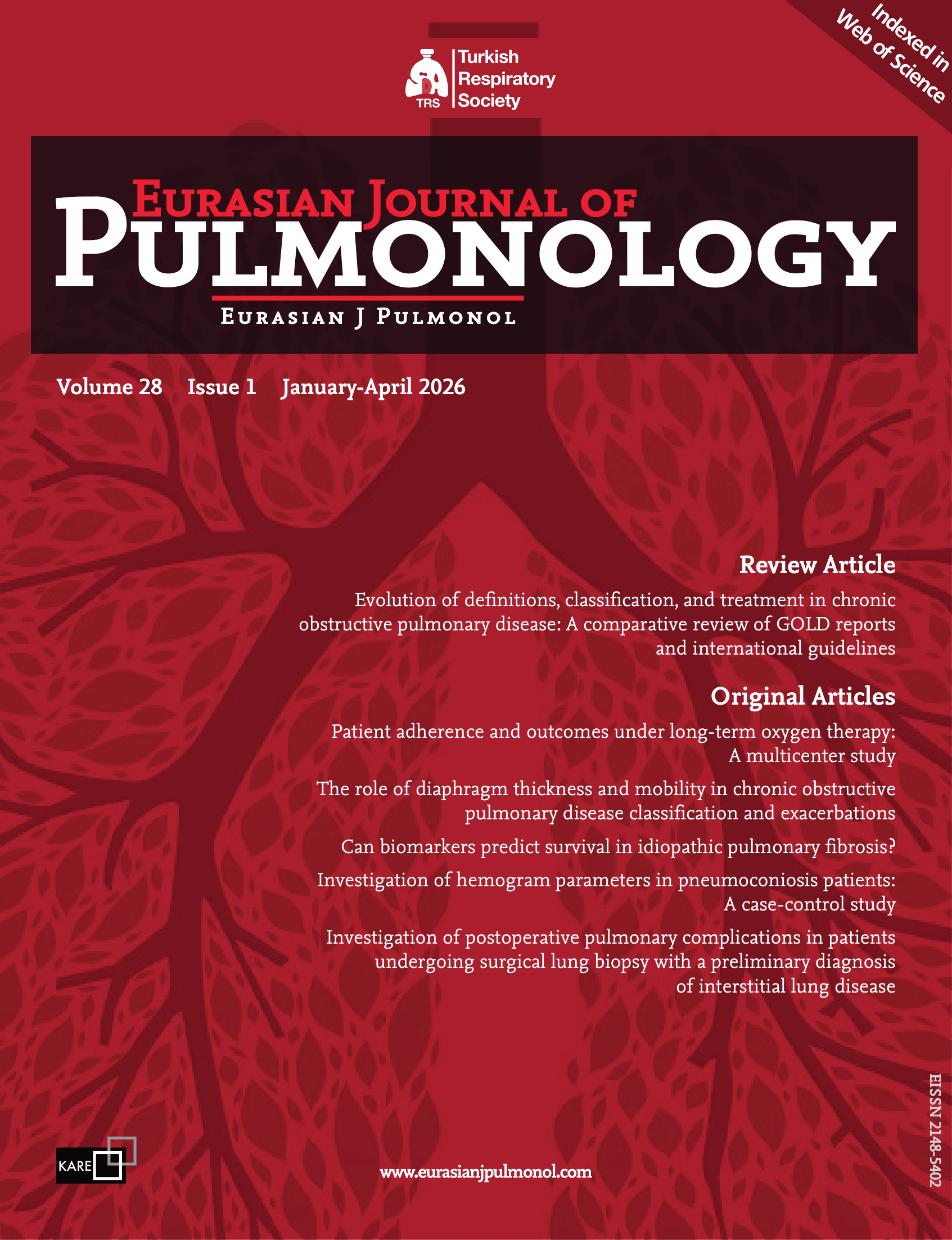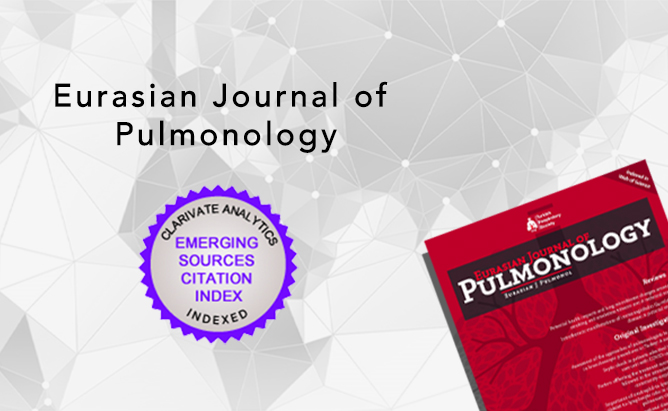2Department of Pulmonology, İzmir Katip Çelebi University, Atatürk Training and Research Hospital, İzmir, Türkiye
3Department of Pulmonology, İzmir Bakırçay University, Çiğli Training and Research Hospital, İzmir, Türkiye
4Department of Pulmonology, İzmir Bozyaka Training and Research Hospital, İzmir, Türkiye
5Department of Psychology, University of Health Science, Dr. Suat Seren Chest Diseases and Surgery Training and Research Hospital, İzmir, Türkiye
Abstract
BACKGROUND AND AIM: Continued smoking has a detrimental effect on lung cancer patients, which may already be associated with anxiety and depression. There is a belief among some that smoking cessation will further increase anxiety and depression in these patients, reducing their quality of life. In this study, we aimed to determine whether there was a difference in anxiety, depression, and quality of life scores between ex-smokers after the diagnosis of lung cancer and current smokers.
METHODS: One hundred patients with advanced lung cancer were included in the study. Demographic characteristics were recorded, and the smoking status of patients was questioned. The Hospital Anxiety and Depression Scale and European Organization for Research and Treatment of Cancer Quality of Life tests were performed to evaluate anxiety, depression, and quality of life.
RESULTS: The mean age was 61±8 years. Adenocarcinoma was the most common type of cancer, and 64% of the cases were at stage 4. Of the total 100 patients, 8 had never smoked, 23 were smokers, and 69 were ex-smokers. After the diagnosis of lung cancer, 17 patients quit smoking. No statistically significant difference was found between smoking status and anxiety or depression and quality of life scores (p>0.05). There was no difference between anxiety or depression and quality of life scores between patients who quit smoking after the diagnosis and those who continued (p>0.05).
CONCLUSIONS: Patients with lung cancer should not be abstained from smoking cessation because of the possibility of increased anxiety or depression; rather, patients should be supported for smoking cessation at any stage.




 Filiz Güldaval1
Filiz Güldaval1 




